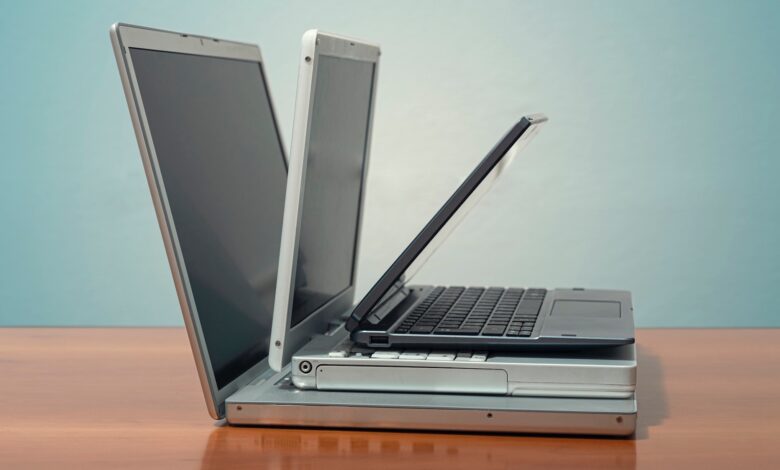How to keep your old computer running for as long as possible

How to Make Your Laptop or Desktop Last Longer
As technology advances at a rapid pace, it’s easy to feel like your laptop or desktop computer is becoming outdated sooner than you’d like. However, there are several ways you can extend the life of your computer and get the most out of your investment. Not only will this save you money in the long run, but it also helps reduce electronic waste. Here are some tips to help you make your laptop or desktop last longer:
Cut down on the clutter
One of the simplest ways to extend the life of your computer is to reduce the clutter on your system. Uninstall any apps that you no longer use and keep your apps free of unnecessary extensions and add-ons. By limiting the number of programs that start up with your computer, you can free up valuable system resources and improve performance. Additionally, having more storage space available allows your computer to operate more efficiently. Be sure to regularly delete files and programs that you no longer need.
Choose some upgrades
Consider investing in upgrades for your computer to breathe new life into it. Upgrading the RAM or storage on your computer can significantly improve its performance and extend its lifespan. While this may require some investment, it is often more cost-effective than purchasing a new computer. Research the best upgrades for your specific system and budget to get the most out of your device.
Install another operating system
If your computer is struggling to keep up with the demands of its current operating system, consider installing a lightweight alternative. Linux is a popular and free option that offers various distributions designed to run efficiently on older hardware. ChromeOS Flex is another alternative that can turn your computer into a Chromebook, perfect for web browsing and basic tasks. Before installing a new operating system, be sure to back up all important files and folders.
Use your computer for something else
If your computer is no longer suitable for everyday tasks, repurpose it for a different use. For example, you could turn your old computer into a media server to stream audio and video to other devices on your network. Alternatively, use it as a dedicated writing machine for offline work. While repurposing your computer may not eliminate the need for an upgrade, it can prolong the life of your hardware and reduce electronic waste.
By following these tips, you can extend the lifespan of your laptop or desktop computer and get the most out of your investment. With a little maintenance and creativity, you can continue to use your computer for years to come.
When it comes time to dispose of your old computer, it’s important to do so responsibly. Electronic waste, or e-waste, can have a significant impact on the environment if not properly handled. This includes toxic materials like lead, mercury, and cadmium that can leach into the soil and water if not disposed of correctly.
One way to responsibly get rid of your computer is to recycle it. Many electronics retailers and manufacturers offer recycling programs where you can drop off your old computer for proper disposal. Some even offer trade-in programs where you can get credit towards a new purchase when you recycle your old device.
Another option is to donate your old computer to a charity or organization in need. Many schools, community centers, and non-profit organizations accept donations of used electronics to help bridge the digital divide and provide access to technology for those who may not be able to afford it.
If your old computer is no longer functional, you can also look for e-waste recycling facilities in your area. These facilities specialize in dismantling and recycling electronic devices in an environmentally friendly way, ensuring that valuable materials are recovered and hazardous substances are disposed of properly.
Before you dispose of your computer, make sure to remove any personal data and sensitive information from the device. This includes deleting files, resetting the device to factory settings, and removing any external storage devices like hard drives or USB drives.
By disposing of your old computer responsibly, you can help protect the environment and ensure that valuable resources are recycled and reused. So, next time you need to get rid of a computer, make sure to do it the right way. The world of technology is constantly evolving, with new advancements and innovations being made every day. One area that has seen significant growth in recent years is artificial intelligence (AI). AI is the simulation of human intelligence processes by machines, especially computer systems. It involves the development of algorithms that can perform tasks that typically require human intelligence, such as visual perception, speech recognition, decision-making, and language translation.
One of the most exciting developments in AI is deep learning, a subfield of machine learning that uses artificial neural networks to model and process complex patterns in large amounts of data. Deep learning has been used to achieve remarkable results in a wide range of applications, including image and speech recognition, natural language processing, and autonomous driving.
Another area where AI is making a big impact is in healthcare. AI-powered tools are being used to analyze medical images, diagnose diseases, predict patient outcomes, and personalize treatment plans. For example, AI algorithms can help radiologists detect tumors in medical scans more accurately and quickly, leading to earlier diagnosis and treatment for patients.
In the field of finance, AI is being used to analyze market trends, predict stock prices, and detect fraudulent transactions. By processing large amounts of data in real-time, AI algorithms can identify patterns and anomalies that human analysts may miss, helping financial institutions make better-informed decisions and mitigate risks.
AI is also being integrated into customer service, with chatbots and virtual assistants being used to provide personalized support to customers. These AI-powered tools can answer queries, resolve issues, and even anticipate customer needs based on past interactions. As a result, businesses can improve customer satisfaction and streamline their operations.
Despite the many benefits of AI, there are also concerns about its impact on jobs and privacy. Some fear that AI will automate jobs and lead to widespread unemployment, while others worry about the ethical implications of AI-powered surveillance and data collection. As AI continues to advance, it will be important for policymakers, businesses, and society as a whole to address these challenges and ensure that AI is used responsibly and ethically.
Overall, AI has the potential to revolutionize industries, improve efficiency, and enhance our daily lives in countless ways. As researchers continue to push the boundaries of what AI can achieve, we can expect to see even more exciting developments in the years to come. It is an exciting time to be a part of the AI revolution, and the possibilities are truly endless.




